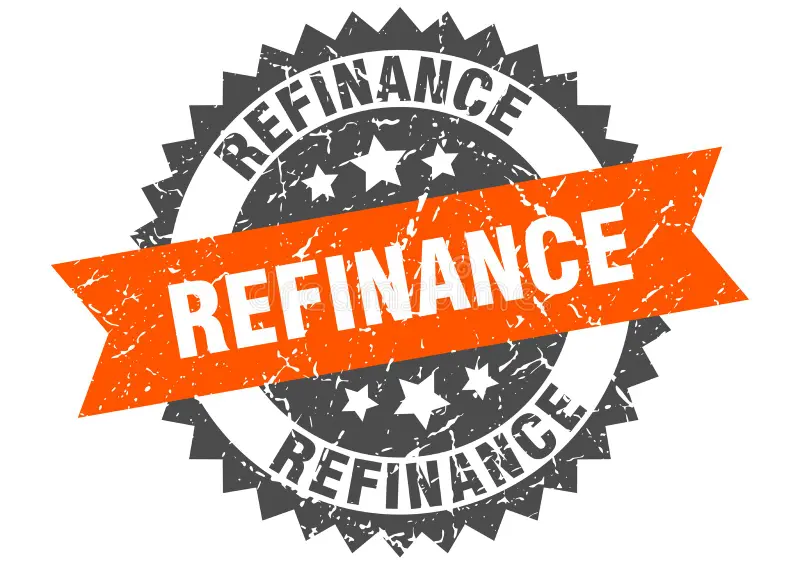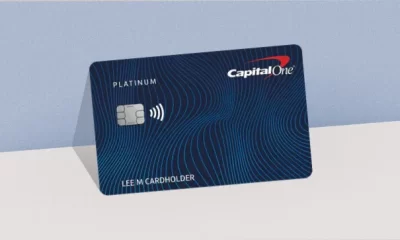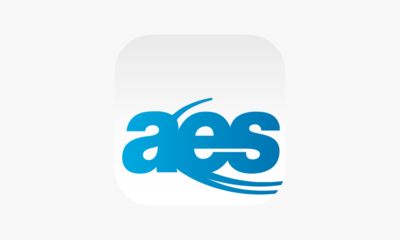Credit
Refinancing Student Loans – Top Lenders and Best Offers

Is A Student Loan Refinance The Right Option For Me?
Millions of individuals throughout the United States are struggling with this question right now. It is no wonder either – currently, Americans owe more than $1.5 trillion. This may seem staggering but when you consider that over 45 million individuals have student loan debt it begins to put things in to perspective. Many students are struggling to meet their student loan payments. Estimates show that over 1 million borrowers default on their student loans each year. In fact, up to two thirds of student loan borrowers have less than $1,000 in their bank account. It is no wonder that many borrowers find themselves at a crossroads when determining the best way to handle their student loan debt.
Is Refinancing The Best Move For You?
If you have student loan debt it is likely that you receive offers for refinancing and consolidation on a regular basis. Banks and lenders are competing more than ever to earn consumer business. When you consider that the average interest rate for student loans ranges from 4-8% it makes a lot of sense by big banks and lenders would love to have a piece of your consolidation. All of us with student loan debt have already accepted the fact that we are going to be paying interest on our loans. The next step is determining how we can pay as little as possible. That is what we will try to address in this review.
Before we get started on reviewing several of the most highly rated and respected student loan refinancing companies there is something very important borrowers should first consider. While big banks are often the first thing that comes to mind, students should also look to Credit Unions and Small/Regional Banks for consolidation and refinancing. Checking with your local banks and credit unions, or the bank that you already do business with, can be a smart first step when thinking about student loan refinancing. Not all banks or credit unions will offer student loan options. With that said, due to the fact that they often have more lenient underwriting regulations it is possible you may find your best deal locally. With this in mind, we will take a close look at some of the bigger student loan service providers.
Reviewing 5 of the Major Student Loan Consolidation Companies
These reviews are not ranked in any particular order and it is extremely likely that the best offer will vary depending on the customer. Banks use a huge list of criteria to make financing decisions so the lender best for one individual may be completely different than someone else who may even have a similar credit profile. Above all else, consumers need to shop around and get as much information personalized to their situation to make the most informed and financially wise decision.
1) SoFi – Check Your Rate
- Minimum credit score of 650 required to refinance student loans
- Zero origination fees and zero application fee
- There is no pre-payment penalty for paying off loan early
- Flexible term lengths available (5, 7, and 10 year repayment plans)
- Rates can be checked online and do not impact credit history
- Consolidate private student loans and federal student loans
Overall, SoFi is becoming one of the most popular student loan refinancing companies. This is due to their ease of use, flexible options, low interest rates and attentive customer service. A simple search will reveal they are highly rated across rating platforms. By and large, consumers mostly have good things to say about the service they receive.
2) LendKey – Check Your Rate
- Checking your rate takes just minutes with no credit impact
- Variable and Fixed interest rates are available as loan options
- No hidden fees for origination or application
- Provides rates from hundreds of banks consumers can select from competitors
- Option to remove co-signers if requirements are met (12 month on time payment)
LendKey is somewhat unique to this list as it provides you with rates from hundreds of banks and credit unions. This means you will be able to review offers from many sources. Rates are advertised as low as 2.47% for variable rate and 3.49% for fixed rate loans. Because there are so many lenders complied with LendKey the is no reason not to your their rate with LendKey.
3) Earnest – Check Your Rate
- Earnest provides some customers with cash signing bonuses
- Customers can set up auto payment for a 0.25% interest rate discount
- Options to skip payments and no payment for paying off your balance early
- Rates are available for review online – no credit review necessary
One of the biggest reasons Earnest makes this list is because they often send out cash bonus offers if you refinance your loans. The amount of your bonus varies based on how much you refinance. Some customers are eligible for up to $500 sign up bonus. When reviewing your loans, if all other aspects of your offers are equal, this makes Earnest a no brainer. However, do not fall for the bonus if you are not getting a great rate as well.
4) Citizens Bank – Check Your Rate
- Personalized rate quotes available online in less than 2 minutes
- Federal student loans and private student loans can be combined in to one consolidation
- Live chat assistance avaialble to assist in the application process
- No prepayment, origination fee, or application fee for student loan refinancing
- Up to 0.5% discount in interest rate available for some customers
One of the best aspects of a Citizens Bank refinance is that you can get a substantial 0.5% interest rate discount. This discount is available when you set up automatic payments and maintain an account with Citizens Bank. Borrowers who already have a Citizens Bank Account should absolutely check their rates with Citizens. The discount they provide could be the difference between hundreds of dollars when compared to other competitors.
5) CommonBond – Check Your Rate
- Rates start as low as 2.69% for refinancing student loans
- Flexible term lengths from 5, 7, 10, 15, and 20 year terms
- Fixed, variable and hybrid interest rates are available for loan options
- Loan forbearance options are available for up to 24 months in some circumstances
- Find your rate in seconds at no impact to your credit history
CommonBond is another very popular option in part because customers have the option to refinance Parent Plus loans in the name of the student borrower (removing the parent from the loan). If you do use a co-signer, there is the option for them to be removed after 36 months of on time payments. With flexible terms and options CommonBond is definitely worth a look.
Final Wrap Up For Consolidation and Refinancing
The key takeaway is that there are many companies and banks out there that will gladly refinance your loans if you meet their credit requirements. This is great news because it gives consumers the power to search for the best interest rate and repayment terms. Borrowers should also not shy away from any sort of bonus offers. Sign up bonuses are not simply gimmicks but are a product of a very competitive lending environment. Because almost all lenders allow you to view rates at no impact to your score and this process only takes minutes, it is sensible to check your rates with as many companies as possible before settling on a lender.
Hilton Honors 13x Bonus Points With Amazon (Up to $500)
Chase Ink Preferred Referral – 20,000 Bonus Points Per Referral
Credit
Bouncing Back: A Guide to Understanding and Recovering from Sudden Credit Score Drops

Experiencing a sudden decline in your credit score can be both startling and disconcerting. The number that financial institutions use to judge your creditworthiness can fluctuate for a myriad of reasons, many of which might not be immediately apparent. However, understanding the underpinnings of credit scores and the steps that can be taken to recuperate lost points is crucial. In this comprehensive guide, we delve into the common culprits behind these unexpected drops and map out a clear route to credit score recovery, empowering you to regain control of your financial health.
Unveiling the Mystery: Why Did My Credit Score Drop?
Before we explore recovery tactics, let’s first examine the potential triggers of a sudden decrease in your credit score:
- Inaccuracies on your credit report: Sometimes, the fault may lie with errors on your credit report. It’s not uncommon for credit reports to contain mistakes, ranging from incorrect personal information to misreported account statuses. Regularly reviewing your credit reports from the three major credit bureaus is essential.
- Missed or late payments: Your payment history is the most influential factor for most credit scoring models. Even a single payment that’s 30 days late can significantly impact your score.
- Increase in credit utilization: An uptick in your credit card balances can raise your credit utilization ratio, which might lead to a score decrease. Experts often recommend keeping this ratio under 30%.
- Recently opened credit accounts: Opening several credit accounts in a short period can result in a minor score dip due to the hard inquiries and the average age of your credit accounts being lowered.
- Closing old credit accounts: Conversely, closing your oldest accounts can shorten your credit history length and potentially lower your score.
Strategies for Credit Score Revival
Once you’ve pinpointed the cause of your credit score drop, you can implement several strategies to nurse it back to health:
- Dispute Credit Report ErrorsMistakes on a credit report can be disputed by contacting the credit bureaus directly or through the assistance of a consumer financial protection bureau. Timely correction of these inaccuracies can help restore your score.
- Focus on Payment PunctualityEnsure that all your bills are paid on time. Setting up automatic payments or calendar reminders can be effective ways to avoid missing due dates. Consistent, timely payments will gradually improve your score.
- Reduce Outstanding BalancesWork towards lowering the balances on your credit cards and loans. The FICO score model views lower credit utilization ratios favorably. Crafting a budget that prioritizes debt reduction can be beneficial for your score.
- Be Strategic About Credit ApplicationsLimit the number of new credit applications you submit. Each application can result in a hard inquiry, which can slightly damage your score. If you must apply for credit, try to do so sparingly.
- Maintain a Mix of CreditHaving a variety of credit types—from credit cards to auto loans—can be positive for your score, but only if managed responsibly. This demonstrates your ability to handle different kinds of financial obligations.
Prevention: The Best Medicine
Prevention is better than cure, and this adage holds especially true when it comes to credit scores. To prevent future drops, maintain good financial habits, monitor your credit report regularly, and adjust your spending behaviors to align with your credit goals. With a proactive approach, a sudden credit score drop will be nothing more than a temporary setback on your journey to financial success.
Remember, credit score recovery is a marathon, not a sprint. It requires patience, discipline, and a clear understanding of the factors that influence your score. By following the guidelines outlined in this post and leveraging resources from reputable sources, you’ll be well on your way to bouncing back from a credit score dip and forging a path to a robust financial future.
Credit
From Decent to Excellent: Proven Strategies to Elevate Your 640 Credit Score and Unlock Financial Freedom

A 640 credit score is seen as the gateway to fair credit territory—a launchpad for individuals striving to turn their financial narrative from good to great. While this score is certainly not the bottom of the credit spectrum, it doesn’t offer the benefits that higher scores provide. By employing strategic measures to improve your credit score, you are not just brushing up a number; you’re opening a world of financial opportunities that can lead to more favorable loan terms, lower interest rates, and a sense of security. In this post, we’ll explore actionable tips to help you elevate your credit score from decent to excellent, setting the stage for financial freedom and success.
Understanding the Importance of Your Credit Score
Your credit score is a critical financial parameter that lenders use to evaluate your creditworthiness. A 640 score signals to creditors that you’re on the cusp of transitioning to a higher credit tier. By enhancing your score, you can access better financial products and services, which can significantly impact your life. Let’s take a closer look at how you can make this transition.
Review Your Credit Reports Regularly
Errors on credit reports can drag down your score. It’s essential to check your credit reports from all three major credit bureaus—Equifax, Experian, and TransUnion—regularly and dispute any inaccuracies you find. This seemingly small step can have a big impact on your credit score.
Reduce Your Credit Utilization Ratio
High credit utilization can significantly lower your score. Financial experts recommend keeping your credit utilization ratio below 30%. This means if you have a credit limit of $10,000 across all cards, you should strive to owe less than $3,000 at any given time.
Strategic Actions to Boost Your Score
Elevating your credit score requires a combination of tactics and sustained effort. The following strategies are designed to help you responsibly manage credit and showcase your reliability to lenders:
- Pay Your Bills on Time: Your payment history is the single most significant factor affecting your credit score. Set up reminders or automate your payments to ensure that you never miss a due date.
- Avoid Taking on More Debt: While it might be tempting to open a new credit account to improve your credit mix, it’s essential to avoid incurring more debt until your score has improved.
- Increase Your Credit Limits: If you have a good payment history, you may be able to negotiate higher credit limits on your existing accounts, which can help lower your overall credit utilization.
Consider a Mix of Credit
Having different types of credit—such as credit cards, retail accounts, installment loans, finance company accounts, and mortgage loans—can benefit your score. However, it’s not wise to take out a loan you don’t need just to improve your credit mix.
Become an Authorized User
Becoming an authorized user on a family member or friend’s credit card can be a quick way to boost your score, as long as the primary cardholder has a strong payment history and keeps low balances.
Maintaining and Monitoring Your Progress
Improving your credit score is an ongoing process. You must be diligent about maintaining good credit habits and monitoring your credit score regularly. Patience is key—the results of your efforts will materialize over time as your credit history grows and your score begins to reflect your creditworthiness accurately. Embrace the journey towards financial freedom with confidence, knowing that each step you take is a move towards better financial opportunities.
By following the strategies outlined in this post and making informed decisions, you can transform a 640 credit score into a stellar financial reputation. Remember, each positive action contributes to a brighter financial future. Start today, and watch your credit score—and your financial opportunities—soar.
Credit
Is the The U.S. Bank Altitude® Connect Visa Signature® Card Hard to Get? What Are the Benefits?
The U.S. Bank Altitude® Connect Visa Signature® Card is a compelling option for those who travel frequently or spend a lot on gas. It offers a range of benefits and rewards that cater to various spending habits, especially in categories like travel, gas stations, and streaming services.
One of the standout features of this card is its reward structure. It offers 5X points on prepaid hotels and car rentals booked directly in the Altitude Rewards Center. Additionally, cardholders earn 4X points on travel at gas stations and EV charging stations, making it an excellent choice for road trips. For everyday spending, the card provides 2X points at grocery stores, grocery delivery, dining, and on eligible streaming services, with 1X point on all other eligible purchases.
The card also comes with a lucrative sign-up bonus. New cardholders can earn 50,000 bonus points after spending $2,000 within the first 120 days of account opening. This bonus is equivalent to a $500 value redeemable towards travel, gift cards, cash back, merchandise, and more. Notably, points earned on the Altitude Connect Card do not expire, adding to its long-term value.
Other significant benefits include a $30 credit for annual streaming service purchases like Netflix, Hulu, Spotify®, and Apple Music. Additionally, the card offers up to $100 in statement credits for TSA PreCheck® or Global Entry® application fees every four years. For frequent flyers, the complimentary Priority Pass™ Select membership provides access to over 1,300 VIP airport lounges worldwide, enhancing the travel experience.
The U.S. Bank Altitude® Connect Visa Signature® Card is generally targeted towards individuals with good to excellent credit scores. This implies that applicants should have a well-established credit history and a high credit score to increase their chances of approval. The card has an annual fee of $95 after the first year, which is waived initially. However, it does not have foreign transaction fees, making it more appealing for international purchases.
In terms of APR, the card has a variable APR ranging from 21.24% to 29.24%. Like most credit cards, it’s important to consider this aspect, especially if you plan to carry a balance on the card. The card also offers a Pay over Time feature with U.S. Bank ExtendPay™ Plan, allowing cardholders to split eligible purchases into equal monthly payments.
Overall, the U.S. Bank Altitude® Connect Visa Signature® Card is a strong contender in the category of travel and gas rewards credit cards. Its combination of high reward rates, travel perks, and streaming service credits make it a valuable card for those who spend heavily in these areas. However, potential applicants should weigh the annual fee and credit requirements against the benefits to determine if it aligns with their financial habits and goals.
-

 Business2 years ago
Business2 years agoHow To Check Your Business Credit Score
-

 Credit2 years ago
Credit2 years agoBetter Cash Installment Loan Offer Review
-

 Credit2 years ago
Credit2 years ago7 Tips for Managing Your Finances in Your 20s
-

 Family2 years ago
Family2 years agoThe Importance of Saving Money on Baby Products
-
Credit2 years ago
Best Cash Back Credit Cards of 2023: The Ultimate Guide
-

 Credit2 years ago
Credit2 years agoWhat Is The Impact of Student Loan Debt on Your Credit Score?
-
Credit1 year ago
Bouncing Back: A Guide to Understanding and Recovering from Sudden Credit Score Drops
-

 Credit2 years ago
Credit2 years agoUnlocking Potential: The Capital One Credit Increase Hack




